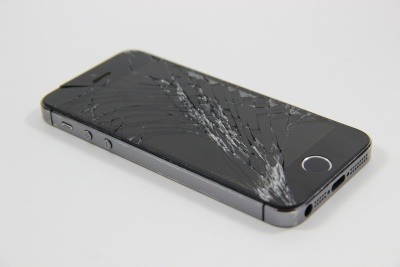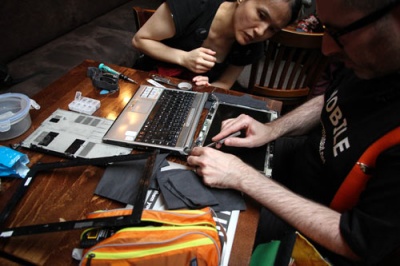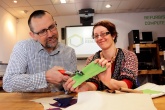International Repair Day: Five organisations combating the throwaway society
International Repair Day (20 October) is about celebrating the value in fixing stuff instead of throwing it out.
Frequently, it seems like our possessions aren’t built to last, whether that’s clothing or technology. The ‘fast fashion’ approach to clothing, where items are mass-produced with a quick turnaround based on seasonal trends, often results in items that are poor quality, designed only to be worn for a few months. And if a new edition of the iPhone comes out every year, models don’t need to last all that long – after all, they’ll only be replaced.

Looking at electronics in particular, many people believe in the concept of planned or premature obsolescence – the idea that tech companies design products to break down after a certain period of time, or develop newer software incompatible with old models, purely so consumers are forced to purchase new devices on a regular basis and buy into the quick-replacement culture.
Only recently, Apple was forced to apologise to customers when it was revealed the company had deliberately and secretly slowed down the performance of older iPhone models, which some believe was part of a ploy to get people to upgrade to newer devices – although Apple has stated the phones were only slowed down in order to avoid unexpected shutdowns.
In addition, many products are designed in such a way that they are difficult and costly to repair at home, with little access to spare parts – another barrier to repair and reuse.
The waste produced by this throwaway culture is staggering. A 2017 report by the United Nations University predicts that by 2021, the world will be producing 52.5 million tonnes of electronic waste a year, while only 20 per cent of all e-waste currently generated is collected and recycled, with the rest going to landfill. In addition, WRAP has stated that in the UK alone in 2016 we purchased 1.13 million tonnes of clothing – and all the clothes in use in the UK during that year had a total carbon footprint of more than 26 million tonnes of CO2 equivalent.
A backlash to this approach seems to be growing, however, and there are a number of organisations aiming to make it easier for people to extend the life of their clothes and electronics through repair. We take a look at some of those groups leading the way in repair and reuse in the UK and around the world.
The Open Repair Alliance – International electronics repair
The Open Repair Alliance, the group behind International Repair Day, is an international group made up of organisations with the same goal – ‘working towards a world where electrical and electronic products are more durable and easier to repair’.
The community aspect of repair is important to the group, and its members run a range of events to help people learn more about repairing their possessions. More widely, the Open Repair Alliance is focused on documenting and sharing data around repairs to be used by groups around the world.
Ultimately, it is hoped that the information being collated by the Open Repair Alliance and its members can be used to lobby governments about the ‘right to repair’ influence legislation around eco-design, to ensure that manufacturers make it as easy as possible for people to repair and maintain their products.
Repair Café Foundation – Supporting local repair groups
The Repair Café Foundation helps groups across the world to set up community repair events, where individuals can learn how to fix broken items with the help of expert volunteers. The first Repair Café was launched in Amsterdam in 2009, and since then hundreds more have been developed in the Netherlands and worldwide, creating an international network of small community groups dedicated to changing our throwaway relationship with our belongings.
 A Restart Party in Dartmouth
Photo: Heather Agyepong
The Restart Project – Making repair simple
A Restart Party in Dartmouth
Photo: Heather Agyepong
The Restart Project – Making repair simple

London-based Restart was set up by Janet Gunter and Ugo Vallauri, inspired by their work in using IT for development in rural communities overseas. Comparing the attitude to technology in developing countries with the throwaway culture back in Europe, the pair realisedthat our approach to our possessions needs to change.
The organisation started out by running ‘Restart Parties’, where people could learn about how to repair their small electronic items. This quickly snowballed, with Restart moving to empower local communities across the UK and Europe to set up and run their own repair events. Now, the organisation is developing repair activities for schools, as well as working to set up a directory of reputable repair businesses.
TRAID – Textiles reuse and repair
TRAID is a clothing reuse charity working to raise awareness of the production, consumption and waste of clothes and shoes. The organisation has reuse shops all over London, and recently launched its ‘23% Campaign’ highlighting how 23 per cent of Londoners’ clothes stay unworn in the back of the wardrobe, despite ever-higher rates of clothing consumption.
For International Repair Day TRAID will be running a free repair workshops at Repair Café Leytonstone, where experts will be on hand to help people stitch up their clothing and save it from the bin.
Sarah Klymkiw, Education Programmes Manager at TRAID, commented, “International Repair Day focuses much-needed attention on how we can reduce consumption by discarding less and repairing more. Producing so many clothes, for example, places unsustainable demands on precious resources, from water to land, and repair is a practical way to wear clothes for longer.”
iFixit - Free online repair guide
Even simple repairs, like changing a battery in a mobile phone, can seem daunting when you’ve never attempted it before – and especially when the manufacturer doesn’t provide any instructions. Moreover, not everyone has access to a repair cafe like those set up by Restart. To address this problem, iFixit offers free online guides to fix a huge variety of objects. On the company’s website, you can find guides for phones, tablets, PCs and Macs, cameras, cars and more, covering a huge range of brands, makes and issues.
These guides are written by the website’s members, individuals with an interest in helping others to repair their products instead of replacing them. Each guide sets out the difficulty, time required and steps to repair in a simple and easy to understand fashion. As well as guides, the site offers a forum where the community can share tips and answer questions about products and repair.
For more information about International Repair Day, visit the Open Repair Alliance website.









